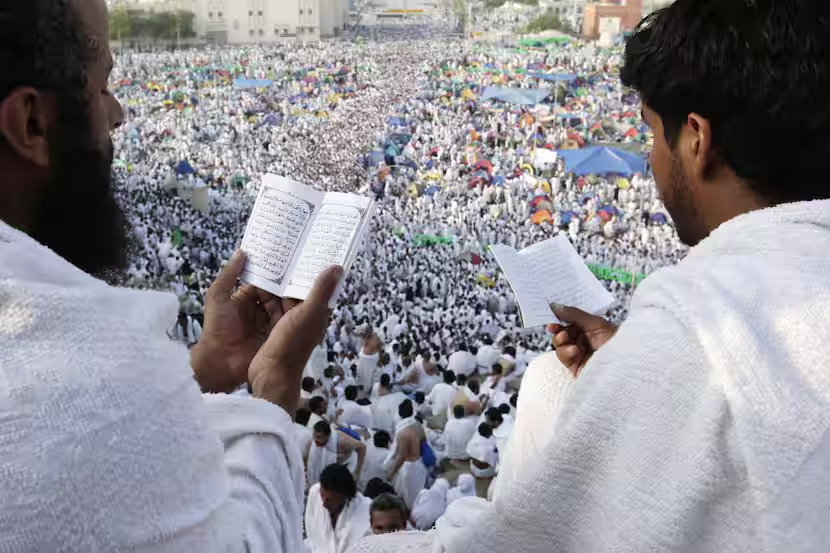
View Original article: https://www.dallasnews.com/opinion/commentary/2020/02/16/a-pilgrimage-can-be-a-response-to-an-invitation-from-god/
Imagine yourself amidst millions of people.
As you begin to look around at the different faces and the different colors of people walking all around you, speaking in languages that you possibly never heard in your life before, what is the feeling you experience?
You freeze.
The mere sight will blind you from seeing individuals as you will begin to see an ocean of them. Similarly, the sounds of their voices speaking languages you don’t know are drowned out as the awe of where you are takes over, and you hear your internal voice saying to yourself, “This is amazing.”
And why not? For this is hajj. This is the Islamic pilgrimage. This is the fifth pillar of Islam for the close to 1.8 billion Muslims around the world.
In Islam, pilgrimage isn’t just an act of worship. It is an invitation from God himself.
In all the commandments of Islam, believers are required to fulfill the obligations and practices that are incumbent upon them wherever they may be. The hajj pilgrimage is also a command, but with a unique twist.
God isn’t telling us to do something or to refrain from something, rather, he is calling us to himself so we can be a guest at his house as we fulfill this once-in-a-lifetime ritual.
The history of the hajj pilgrimage is truly deep and profound. Its roots date back to Abraham, peace be upon him, and his family, Hagar and Ishmael. When God told them to go to Mecca in the desert, Hagar trusted him to take care of her and Ishmael, and God blessed her commitment.
God loved it so much that he made a journey to Mecca a pillar for the Islamic faith and those who adhere to it.
It is easy, however, to get lost in the glitter and glamorous atmosphere vibrant outside the walls of the two holy sanctuaries. State-of-the-art modern high-rises, five-star brand-name hotels, chain restaurants and stores with names that are familiar across the Western world are all on the grounds of Saudi Arabia. The malls are bustling with people shopping at stores such as Footlocker and MAC and at British chain stores such as Next and The Body Shop, all while eating at KFC and Smashburger.
If an understanding of the pilgrimage isn’t instilled in one’s mind before setting out, one will confuse it with a vacation.
Regardless, making a journey across continents to a foreign land to worship alongside people of the international Muslim community, all of whom acknowledge they are guests of their lord, seeking his blessings and appreciating his hospitality, creates a common vibe. The uniformity, the discipline and the focus of the 2 million or so people are unifying. For the days of hajj have now begun.
The five days of the pilgrimage itself are an opportunity for real soul-searching while performing the prescribed rituals. An opportunity a worshipper may have never experienced before and may not see again.
The time for this is either in the world’s largest tent city of Mina, on the open plains of Arafat or while pilgrims are trying to stretch their legs in the darkness of the night without any cover except the sky in Muzdalifa.
By this time, the hajj is halfway complete.
Now, pilgrims are restructuring their lives and their priorities in the final half of the hajj. They walk to three walls that represent the devil and pelt them to cast away all desires and habits that result in sin. They are determined to return home as better humans with a broader perspective on life, hoping to accomplish something before the pilgrimage ends.
At the end of the hajj, the pilgrims have successfully rehearsed death. Whatever tweaks and adjustments they want to make, they have the remainder of their lives to get it done.
